#resume
Text
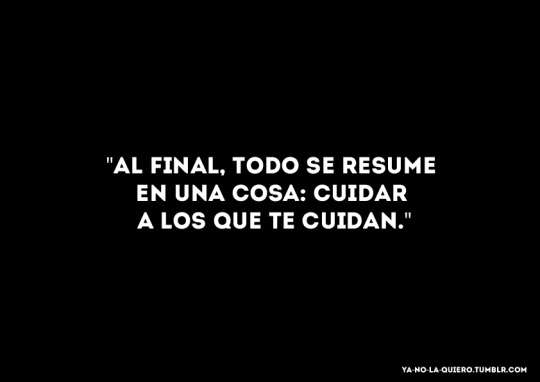
Miguel Gane
#miguel gane#frases#final#resume#cuidar#cuidan#ya no la quiero#bogota#colombia#frases y pensamientos#citas#textos#frases tumblr
2K notes
·
View notes
Text
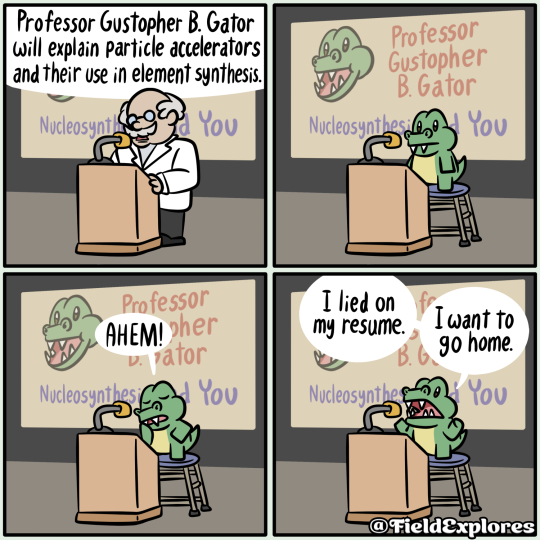
A Gator gives a lecture on nucleosynthesis.
2K notes
·
View notes
Text
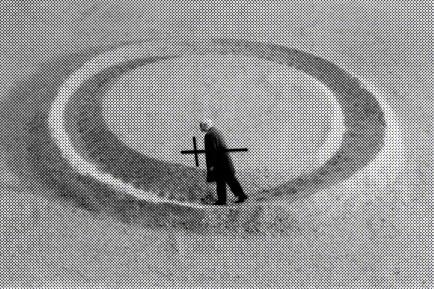

Gilbert Garcin: résumé & synopsis (1999)
4K notes
·
View notes
Text

382 notes
·
View notes
Text
Strap in Folks it’s time to learn some shit!
As HR manager at my job I have to look at A LOT of applications because we are primarily a seasonal job. We have busy seasons and slow seasons.
IM SO DONE WITH PEOPLE NOT KNOWING HOW TO ADVERTISE THEIRSELF!!!
Allow me to clarify.
If you take a break between jobs or couldn’t find a job
-did you do baby sitting?
-yard work for family members?
You didn’t have a gap!
Make a note of work history as landscaping or childcare!
Gaps in your employment never look good unless you also state you were in school!
If your previous job sucked and you only stayed there for about a week
- you never worked there
Don’t put on there that you only worked a week or lie about how long you worked there!
-I am absolutely allowed to call previous jobs and not only confirm you worked there and ask how long
-first assumption will always be that you were fired (sucks but it’s true). I don’t have any backstory so I won’t assume the job was at fault.
Resumes!
-Your resume should NEVER be tailored to the job you are applying for.
-this is supposed to be a basic outline of what you have done and what you can do
- I hate the autogenerated resumes from indeed because I have to go down a giant list that tells me you know how to use Microsoft 20 times in a different font.
- if you use indeed please submit an actual resume.
ASK SOMEONE TO READ OVER YOUR RESUME BEFORE SUBMITTING IT!!!!!
It never looks good if you misspell cashier or drink…repeatedly.
-keep it short! Unless you are going into a technical field that needs to know a full list of you certifications and the programs you can use, you want to keep it to 1 page. I need a summary, not a life story
SCHOOL IS NOT WORK EXPERIENCE! Do not put on there that you have 4yrs xp as a student!!!
Speaking of life stories
-do not leverage your kids for a job. If you tell me you have kids and it affects your availability that’s one thing. If you tell me you really need this job because you have kids, now you are using your kids to get a job and that’s not kosher.
Availability!
Do not lie about your availability!!!!
We ask for that for a reason! If you tell me you have open availability and you get hired, I will schedule you based on that availability. If you then tell me you are only available between the hours of 4pm-9pm….you aren’t getting scheduled and will be terminated.
-cannot and will not cater to your availability and schedule everyone else to accommodate your availability. That’s not fair to me or for coworkers.
Interviews!!!
-talk for the love of god, talk! If it’s a group interview, we want to see how involved you are. If it’s one on one, I want to learn about you!
-dress for success! even the most casual of jobs do not want you to show up in a tank top and shorts. You are here for a job not for a party 😭
Okay I think that’s all I need to rant about. There may be more when we hire again and the torture begins again.
365 notes
·
View notes
Text

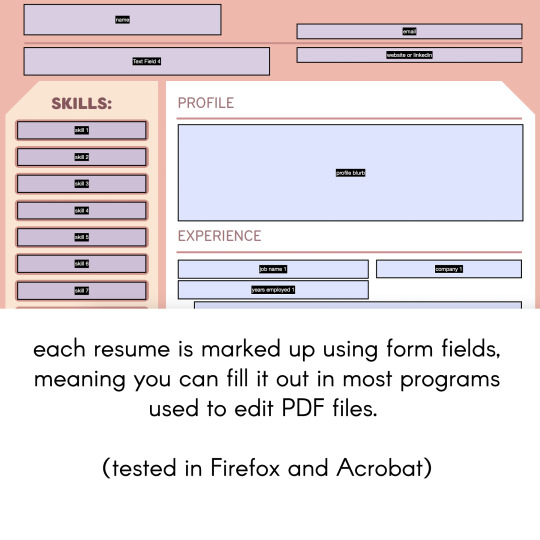

I've been working on creating some nice looking, yet simple to edit, resume templates in my free time lately for anyone looking to apply for jobs!
These PDFs are very easy to fill out - simply import them to a PDF editor of your choice (such as the one included with Firefox) and fill in each field! You may need to alter the file a bit to ensure employers can't edit it, but I hope these are still accessible for those who need them 💕
Link to my Ko-fi store in the reblogs!
498 notes
·
View notes
Text
How to answer tough interview questions.
Subscribing to the Harvard Business Review was one of the best decisions I made. I have learned so much about career development, personal branding, and job crafting. This article summarizes some of the questions you will get asked in a behavioral interview (courtesy of HBR) and I have included my responses to all of them. Assume I am seeking a HR role in a Fortune 500 company
Tell me about yourself and describe your background in brief?
How did you hear about this position?
What type of work environment do you prefer?
How do you deal with pressure or a stressful situation?
Do you prefer working independently or on a team?
How do you keep yourself organized when balancing multiple projects?
What did you do in the last year to improve your knowledge?
Tell me about yourself and describe your background in brief?
I grew up in small country in West Africa. I went to a great school through scholarship with the condition that I would pay it forward to the younger generation. So, after high-school I spent two years teaching math to elementary school kids. It was there I discovered my interest of people development. I enjoyed taking a kid from "I don't like math to can I get more homework? When I moved to the U.S for college I chose to study Psychology with a minor in Organizational Development. And my internship as a Human Capital Manager has allowed me to further develop my communication and leadership skills.
How did you hear about this position?
I learned about this position through Stacy Williams. She was one of the panelists on the fireside chat I convened in my school on the importance of women in leadership positions. I followed up with her through a coffee chat. She really enjoyed her job and the company culture. Her enthusiasm about her work encouraged me to apply and I am really excited to be going through the interview process.
What type of work environment do you prefer?
I thrive in environments where I am constantly learning. A place where each days brings a fresh set of challenges that I can solve. I also like working with teams where we can collaborate on tasks and brainstorm solution-oriented ideas. In my former internship I worked with an incredible team as a project manager in the human resources division and I worked on certain projects where I had full creative control on the outcome. I enjoyed the balance of both.
How do you deal with pressure or a stressful situation?
Stressful situations are inevitable and I learned to navigate them successful throughout my college career and my various internships. The first time I came across a stressful situation was in my Sophomore year. I worked as a customer service representative at a big department store and it was holiday season. You can imagine the amount of pressure - long lines of customers all waiting to get attended too. Instead of succumbing to the pressure I made sure to really understand the pain point of each customer which were long wait times and stock outs. If we were out of one brand of sparkling water, I would quickly recommend a different brand. If lines were long, I would go to the floor to help the bagging process. Customers left feeling satisfied with their shopping experience. Overtime, I have realized that the key to dealing with pressure is willingly choosing to complete the tasks with a positive mindset instead of worrying.
Do you prefer working independently or on a team?
I like a mix of both. I enjoy working on a team. The process of strategizing with my teammates on the best way to approach a problem allows for critical analysis and diverse points of view. Wh I also build camaraderie and trust with them while we tackle big problems. I enjoy working alone as well because I get to see how I approach different problems and compare my current performance to my previous ones. Working alone also gives me an opportunity to get feedback from my managers on my progress or areas of improvement. I like a balance of both.
How do you keep yourself organized when balancing multiple projects?
I am used to working on multiple projects. A typical semester for me is juggling between my classes, weekend job, extracurricular activities, and passion projects. So to stay on top of my deadlines and due dates I like to prioritize my tasks based on their level of urgency and importance. I use the time blocking method to schedule time for my projects. I take advantage of tools like Google calendar to keep track of due dates and appointments and Notion to manage big projects.
What did you do in the last year to improve your knowledge?
Last summer, I took some time off to really learn about veganism. It seemed intimidating at first because I did not know enough. So I turned to research to understand the facts. I began making home-cooked meals by following recipes from people I trusted and liked on YouTube. As I began noticing changes in my gut health and productivity levels, I started a blog to share my experiences. Now my blog has over 500 enthusiastic vegans who are on the same journey as I am. it was one of the best investment I made in myself.
The Big Pivot
#Thebigpivot#self improvement#self love#beauty#growth#mindfulness#self development#classy#education#self care#preppy#educateyourself#career#job interview#jobposting#resume#employment#self control#students#smart#school#self discipline#mindset#study motivation#get motivated
389 notes
·
View notes
Text
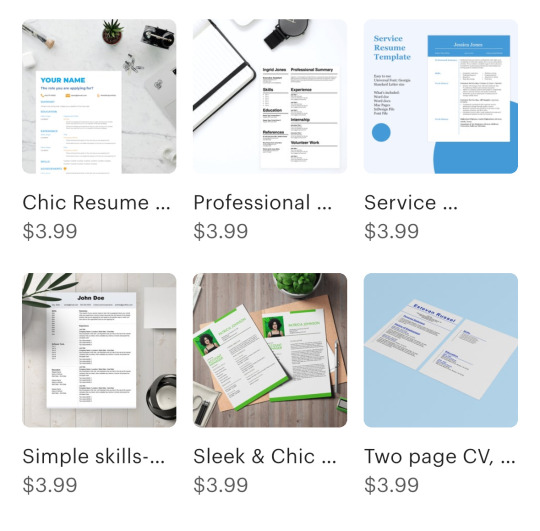
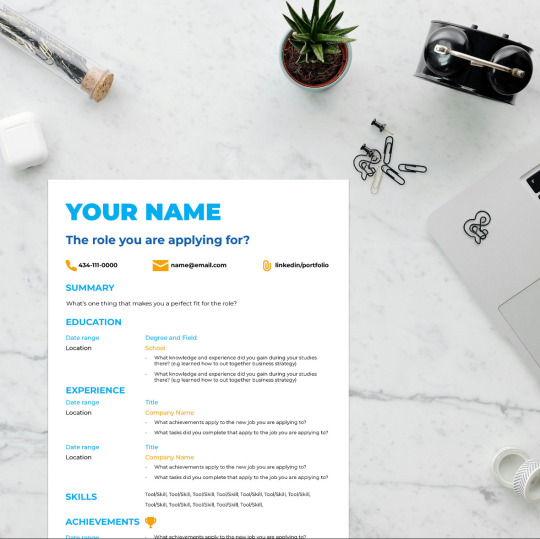
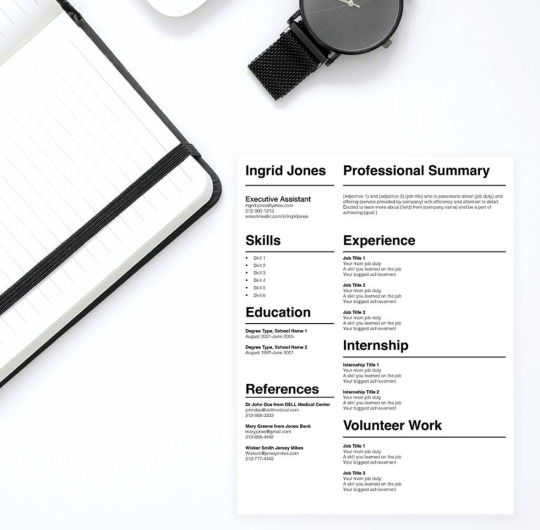
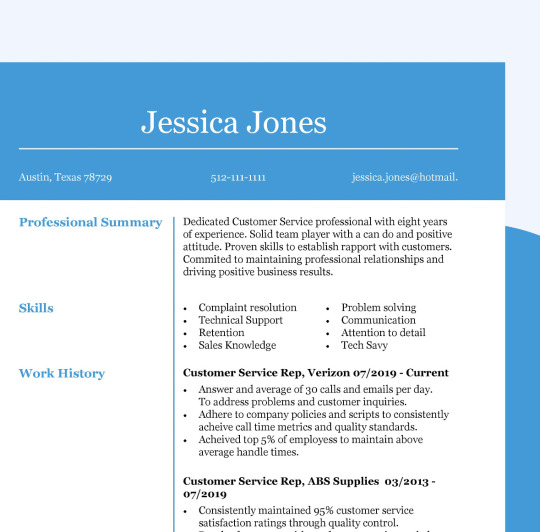


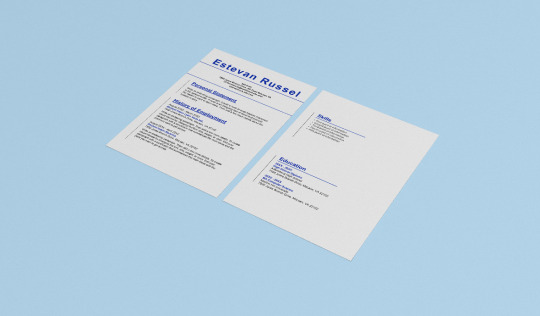
Home of the $3.99 resume template. More templates added weekly.
#resume#template#job interview#jobsearch#jobseekers#resume coaching#etsy#digital#instant download#word#document#career
78 notes
·
View notes
Text
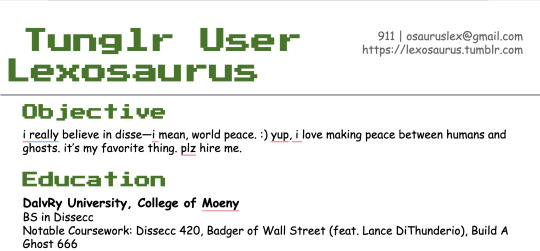
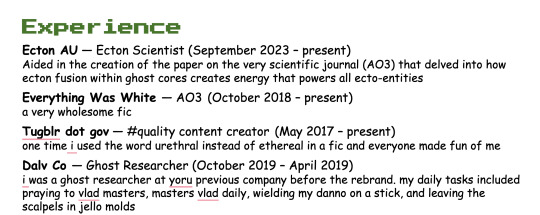

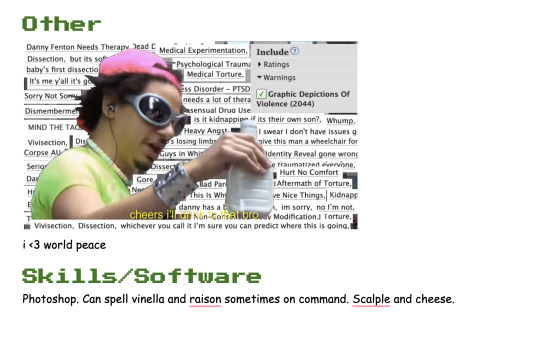
January 2, 2024
@vladco-tech-official
Amity Park, IL
To Whom It May Concern:
I am writing to express my enthusiastic interest in the Ghost Researcher position at Vladco Technologies. With a Bachelor's degree in Dissecc and a strong background in Ecton Science, coupled with my experience at Ecton AU and Dalv Co, I am confident in my ability to become the Casper-friendly researcher you've been waiting for.
In my current role as an Ecton Scientist for the Ecton AU, I played a pivotal role in the creation of a scientific paper published on AO3 discussing how ecton fusion generates energy for ecto-entities. This research has equipped me with a deep understanding of ecto-technologies and a passion for exploring the intersection between the supernatural and earthly scientific realms. As for Everything Was White on AO3, I've been crafting a very family-friendly wholesome fic that proves ghosts have complex emotions that go beyond just skin-deep.
My previous stint as a Ghost Researcher at Dalv Co, before the rebrand, involved daily tasks such as performing ghostly rituals, wielding my trusty Danno on a stick, and conducting experiments with scalpels left in jello molds. This experience has honed my ability to balance the scientific and spiritual aspects of ghost research, making me a valuable asset to Vladco Technologies.
Apart from my formal education and professional experiences, I have a track record of creative endeavors in the ghostly domain. As the writer and producer of the song "Dissecc," I showcased my ability to blend humor and knowledge in the realm of ghostly activities. Additionally, my leadership role in creating world peace as the Leader of Riots demonstrates my capacity to navigate challenging situations and foster unity.
In addition to my technical skills in Photoshop, I possess a keen eye for detail, as demonstrated by my ability to spell "vinella" and "raison" correctly sometimes on command. My proficiency with spelling, combined with my experience in creating quality content on Tuuuble dot ru, further contributes to my well-rounded skill set.
Thank you for considering my application. I am eager to bring my skills, experiences, and enthusiasm to Vladco Technologies. I look forward to discussing how I can contribute to your organization as your next spectral specialist.
Looking forward to the possibility of haunting your labs soon!
Boo-raciously Yours,

Tugnlr User Lexosaurus
-
p.s. plz hire me kthxbye
#danny phantom#phandom#phandom shenanigans#quality content#resume#lexx gets that bread#wish me luck guys!!! this is the job of my dreams!!!
111 notes
·
View notes
Text
My resume!
Saying "on it, boss"
Shooting and missing like a storm trooper
Can be used in conversion of ninjitsu-type mass defeats
Fully capable of holding the fan at just the right angle so the villain's cape goes fwoosh
Ironing said cape beforehand
Pulling evil levers
Minor in Mad Science
Majored in Wicked Schemes
Says mwhahahha
Fully queercoded!
Can (sometimes) make pizza
#resume#evil#henchman#evil henchman#villaincore#henchperson#villain#evilposting#villainposting#hehehaha#mwhaha
211 notes
·
View notes
Text
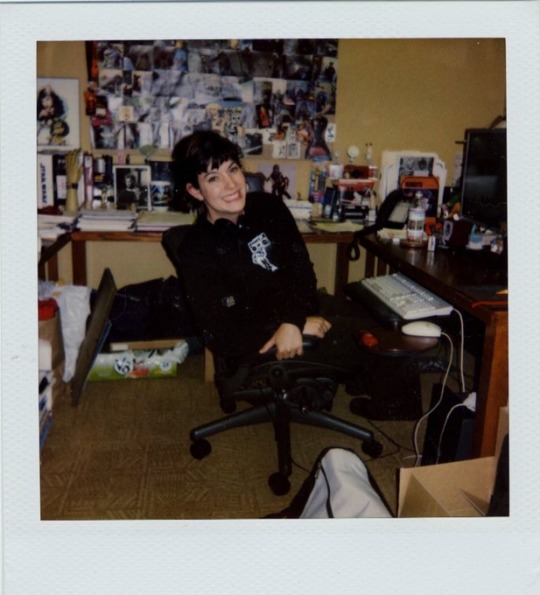
NEED TO HIRE A WRITER, EDITOR, OR COMMUNITY MANAGER?
I have 20+ years as a professional Writer, Editor, Games Writer, Book Author, Journalist, Comics Writer, Marketing Copywriter, Content Strategist, Community Manager, and Social Media Strategist.
I've worked for Lucasfilm, Disney, Discovery, DreamWorks, Hunt A Killer Games, Beadle & Grimm's, Penguin Random House, Quirk Books, Abrams Books, Stan Lee, Playboy, CBS, CNET, NBC, and more.
Thanks for any connections, advice, or job opportunities you can offer.
Click here for my resume.
65 notes
·
View notes
Text
How to write experience with zine, secret santa, writing projects etc. to your resume
All work is work. All work is valid to your resume. You have deadlines to follow, you have to manage your own time, you have specific requirements you need to respect and if you are in the mod team you have to organize, market, manage etc.
Here’s guide how to add hobby projects into your resume as a work experience, as that’s what it is. I will concentrate on zine experience as modern zines are pretty much professionally made and organized projects, whether the result is a printed or a PDF book.
General tips
- Always add international there, as all online projects WILL have people all around the world (unless it’s a very underground fandom project). Even if you had just one foreigner there, it’s an international project. Sounds fancy and resume’s purpose is to make mundane things sound really fancy.
- If it’s a fanfic zine, you can use a novel anthology.
- If possible, add the number of participants. It’s a really good polish to your reputation if you can say that you organized a project with 60 international participant than just say you organized a random event.
- For Secret Santa and other non-zine events, you can use these same examples. I have written to my resume Secret Santa event hosting as “Event organizer, an international online art project with 100 participants, 2022″.
- Your drawing and writing time is work, too. You can utilize these in your resume.
- You CAN and SHOULD act as each others’ referee in resume and work application from events and zines! Includes beta readers and their work!

Working Experience in Non-Fandom Language
Shortly you write what did you do, in what field, year, and what the project was. You can edit these to fit your resume, as every country emphasis different information in the resumes.
You can also specifying what you did; Marketing material designer, 2022, an international art book project. Printed merchandise material designing, key chains, posters, stickers.
Event or Zine organizer: Event and project manager, 2022, an international art book project (with XXX amount of participants). For events, like Secret Santa: Event and project manager, 2022, and international online art/writing project (with XXX amount of people)
Zine’s social media moderator: Social media manager, Social media marketing, 2022, an international art book project (with XXX amount of participants). [Add here the social media platforms you used if you want; Twitter, Pinterest and Instagram interest businesses the most]
Zine artist/author: Artist/author, an international art book project, 2022.
Merch artist: Marketing material designer, 2022, an international art book project.
Discord manager / Person managing the applications / person checking the participants how they’re doing: Team manager, 2022, an international art book project (with XXX amount of participants)
Web page designing: Web page designer, 2022, an international art book project.
Designing event banners, social media icons etc.: Graphic designers, social media and web page, 2022, 2022, an international art book project. [Add here what social media platforms were used; Twitter, Instagram and Pinterest interest businessses the most]
Layout maker: Graphic designer, a book layout, 2022, an international art book project.
Cover artist: Graphic designer/Artist (depending which you did), 2022, an international art book project.
Any mod position were you are in the management position and others help you out or follow your lead: (XXX*) Team manager, 2022, an international art book project. [*Specify, if possible, what kind of a team you managed like Social media team manager]
Handling a physical zine and its shipments: Online shop manager, order distributions, 2022, an international art book project.
Making videos: Video editor, social media marketing*, 2022, an international art book project. (*if the videos are for something else, for example just for fun, you can leave this out)
Animations: Animator, social media marketing*, 2022, an international art book project. (*if the animations are for something else, for example just for fun, you can leave this out)
Gif making: Graphic designing, small animations/gifs, 2022, an international art book project. (*if the gifs are for something else, for example just for fun, you can leave this out)
Calendar: Graphic designer, marketing material, 2022, an international art book project.
Streaming: Streamer / Stream management, Social media marketing*, 2022, an international art book project. (*if the streams are for something else, for example just for fun, you can leave this out)
Beta reading: Proofreading, communications, 2022, an international art book project.

How to Tell More About Your Fandom Project(s) To Normal People
If you are asked to tell more about the project you participated in, don’t worry. You don’t have to start to explain what a zine is, what shipping is, why these characters are kissing steamily, or why the fic you wrote was explicit hurt-comfort otp fic.
You can simply use general terms:
Zine = a book or an anthology project.
Secret Santa = an online art or writing project
Fan video = a full video made for purpose X by editing or drawing fully.
“I participated as an artist/author to a zine of my OTP and drew/wrote this kind of art of them” = I participated in an international art book project/anthology book project. I applied and was selected from many applicants*. The book was put together in X month by multiple people and it was printed. I’m familiar with print requirements, time management, following dead lines and managing my own work.”
*If there was no application process but the event was open for all, you don’t have to speak about the application process at all. If asked, you can say that the event called for artists/authors and I decided to join in.
What you want to emphasis, no matter what you did, is that you can manage your own time, you can follow dead lines and you can follow given requirements. You wouldn’t believe how much there are people at paid jobs who can’t manage their time, hassle with dead lines and require lots of guidance. If you can honestly do something you are asked by a deadline given by the needed requirements - like write a 1500 word fic in 3 months - that IS an asset! You DID manage your time, manage yourself and respected the dead line. As remote work is increasing in many fields, employees who can do those three important things are gold nuggets to companies.
If you are in a mod position, you want to emphasis that you can lead and manage projects, communicate with everyone, keep up with dead lines and schedules, organize, and think also what risks might appear and how to prevent or handle them (like in zine; how many artists/authors might drop out and what do we do in that case?).
What every business and employer needs, no matter what the field, is good communication, proofreading, social media management and marketing, content creators, graphic designs, web designs, and marketing materials.
And those, my friends, are what every single zine project and fandom event contains.
2K notes
·
View notes
Text

52 notes
·
View notes
Text

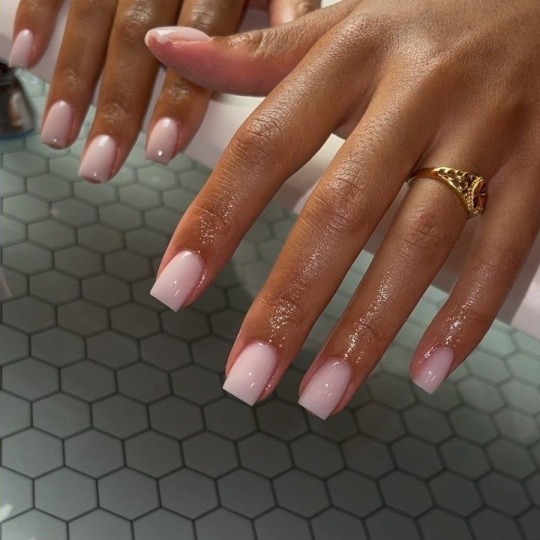
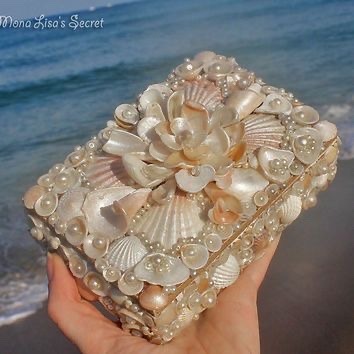
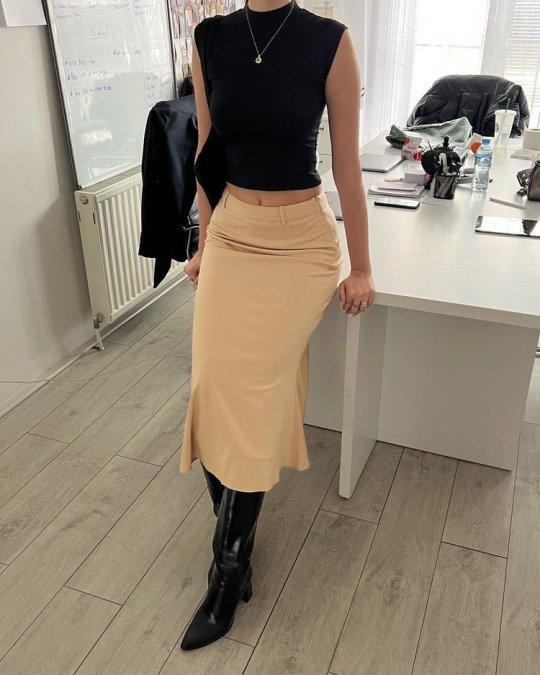
How to Build Identity Capital
What is identity capital? Identity capital is essentially investments that we make in ourselves. Things that play a role in defining who you are, such as, your job, degree, the extra-curricular activities you participate in, where you’re from, how you look, speak etc.
Your identity capital is your autobiography.
Identity capital helps you move up in life, and can play a role in getting you to your goals faster too. It’s sort of like you’re very own personal brand that you’re curating.
A very important thing to note- personal growth, including identity capital, does not happen overnight. It will take time and consistent efforts. There is no get rich quick scheme here apart from discipline.
On a personal level it includes:
1. How we speak
2. How we look
3. How we solve problems
4. Our relationships
5. Our hobbies
On a work level it includes:
1. Resumes
2. Degrees
3. Associations
4. Organisations
5. Accomplishments
So how does one do this?
Get a piece of paper and start answering the questions I’ve noted down. You’ll see a summary of the questions as points below.
Hard skill questions:
1. If I had $3 million in bank account and I had to spend 10% of it on charity, which is the first cause that immediately comes to my mind?
2. Do I need money to give back to that cause or can I also give my time?
3. When was the last time I updated my resume? Can I ask someone for a second opinion on how it looks?
4. What is a skill that is important for my job/ potential or future job for at least the next 3 months?
5. Are there any topics or subjects that I’m naturally attracted to that has no direct relevance to my work? (For instance: I’m very interested in women in history)
6. What is one workshop I would love to attend, if everything was at my disposal? (Example: I’d love to go to a chocolate making workshop)
7. What is a hobby that my ideal self would have?
Soft skill questions:
1. When was the last time I spent time quality time with people that mattered to me?
2. Am I interested in learning a new language?
3. When was the last time I took a social media break?
4. What would my bucket list look like right now?
5. What are some short term goals I know I can achieve with effort by the next month?
6. When was the last time I went over my finances? Can I reach out to someone who can guide me better?
7. Is there anything I enjoy collecting?
8. What is a subject I wish I had in school or college?
Notes of hard skill steps:
1. Giving back to a cause that matters to you
2. Keeping your resume updated
3. Learn a new skill and practicing it for a few months
4. Watching one educational video on YouTube/ one podcast such as TED talks a day to improve your knowledge
5. Attending workshops
6. Keeping a gratitude journal
7. Engage in some sort of a creative project or hobby
Soft skill steps:
1. Spending time with people who matter
2. Learning a new language
3. Social media breaks
4. Making a bucket list
5. Making a list of short term goals (Achievable in the next month)
6. Evaluate your finances and set financial goals
7. Start a collection of something you enjoy
8. Take a class in a subject that interests you, even if it doesnt relate to your job or degree
(Source: The Defining Decade by Meg Jay)
https://gentwenty.com/51-ways-to-build-identity-capital/
#c suite#powerful woman#ceo aesthetic#personal growth#that girl#productivity#strong women#getting your life together#feminine energy#balance#identity capital#building yourself#work#resume#personal development#self#identity#identity crisis#how to#defining myself
338 notes
·
View notes
Text
“Reneesme was beautiful and gifted and unique. She was one of a kind and he could not be allowed to see her”
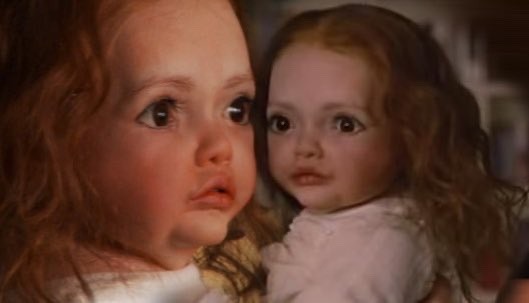
#my brain fog for this morning…#Resume#retrogade#rutabaga#Reneesme#Renaissance#breaking dawn#aro volturi
76 notes
·
View notes
Text
A few things I notice about people writing resumes for entry-level jobs in the games industry...
"resume" is a very popular filename and it is super annoying to have to rename them so you can find them later. firstname_lastname_discipline is the gold standard.
A lot of people put links to their github or online portfolio in the resume these days, which is great. Sure, you can't use it if you print the resume but it has mostly outlived its usefulness at that point.
pdf files are faster to open, smaller and more portable than word documents.
People really don't tailor their resume to the position they are applying for. And I get it, every entry-level job has hundreds of applicants so you need to go wide. But if you are applying to write client engine code all those paragraphs about webpages and databases are a waste.
for entry-level jobs, no-one has enough relevant experience to take up more than one page. Some write more pages anyway.
Job descriptions tend to have "required" and "nice to have" skills. Not always labeled as such, which admittedly is on us - we should be more clear. And some applicants do not seem to realize that if their resume does not indicate that they have all the required skills it will probably not be considered.
A good entry-level resume will have a mix of group projects, personal experiments and a list of skills. Potentially also coursework and/or professional experience. If it is just one or two of those things it tends to feel like something is missing.
... Admittedly everyone has their own preferences, so maybe following the advice of some anon of tumblr isn't the way to go. And if I am being honest, even I wouldn't reject someone for uploading a 3-page "resume.doc".
But of the hundreds I read only a few present relevant information in a clear way about whether the candidate could do the job or not. So I am going to complain about it =P
392 notes
·
View notes